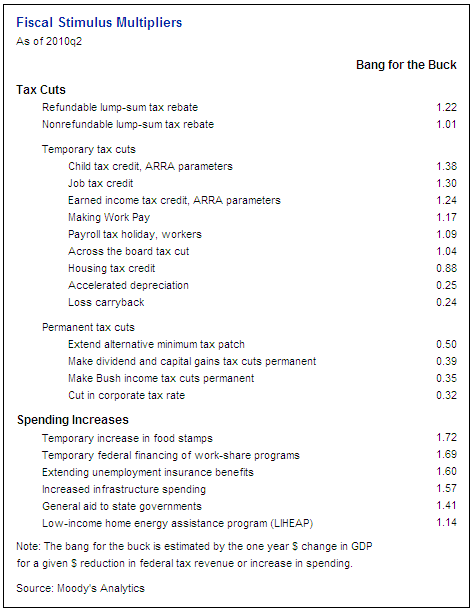- Joined
- Oct 17, 2007
- Messages
- 11,862
- Reaction score
- 10,300
- Location
- New York
- Gender
- Male
- Political Leaning
- Centrist
Moody's warned Monday that it could move a step closer to cutting the U.S. Aaa rating if President Obama's tax and unemployment benefit package becomes law...
"From a credit perspective, the negative effects on government finance are likely to outweigh the positive effects of higher economic growth," Moody's analyst Steven Hess said in a report sent late on Sunday.
U.S. top-notch credit rating at risk
I agree with Moody's. Without provisions for years 3 and beyond to claw back the excess debt that results from the package, not to mention the risk of further renewals without the addition of adequate provisions to assure at least budget neutrality, the package adds to medium- and long-term U.S. credit risk. As the package is coming in the wake of another ritual waiving of an extremely modest Medicare savings mechanism, there remains a real question as to whether U.S. policy makers are willing to address the nation's long-term fiscal challenges. Both actions suggest that, at present, they are not.
Needless to say, it was a welcome development that both commissions charged with looking at U.S. fiscal policy actually provided constructive fiscal consolidation suggestions. However, at this time, those commissions remain far ahead of the bipartisan consensus in Washington that continues to largely ignore the need for medium- and long-term fiscal consolidation, except when it comes to largely meaningless campaign rhetoric.

